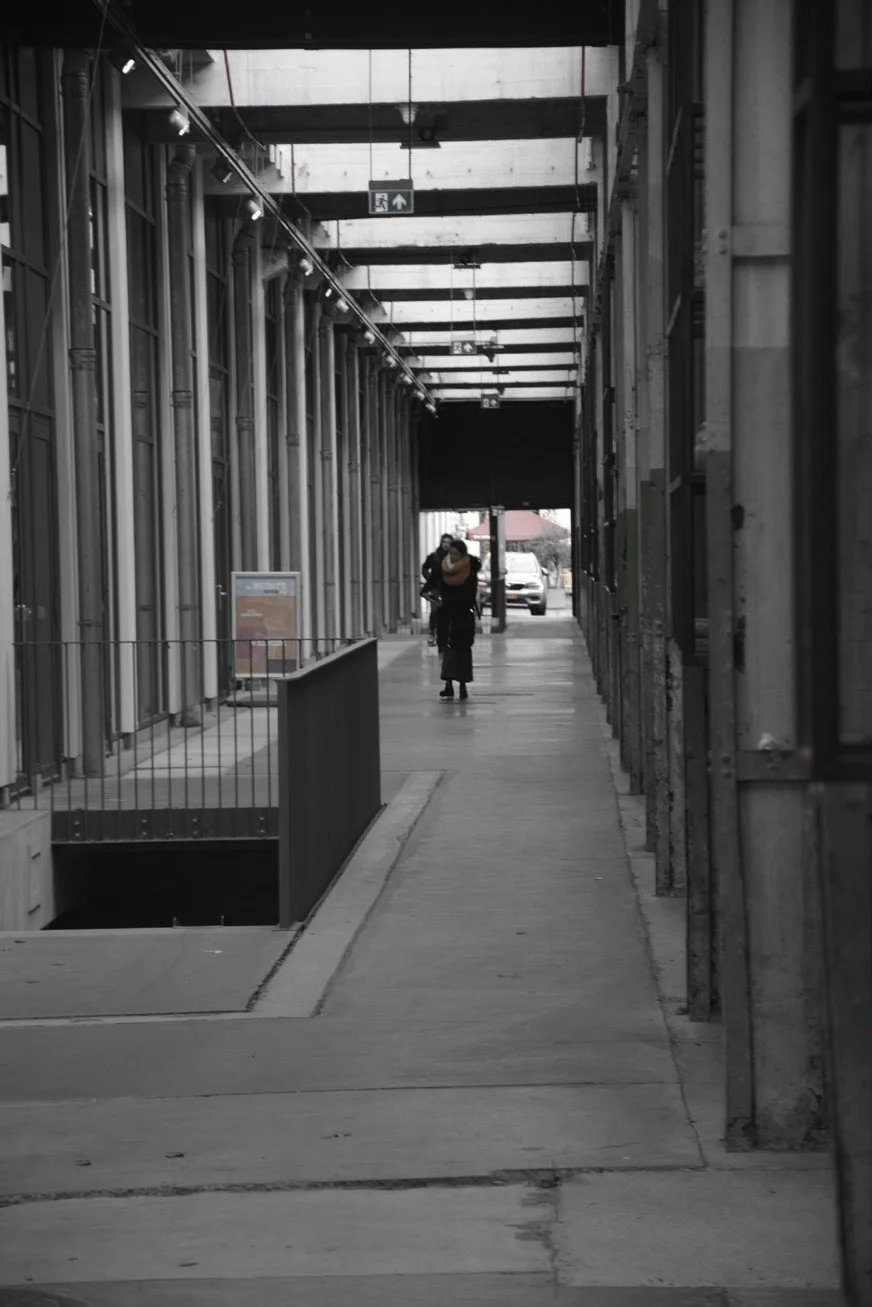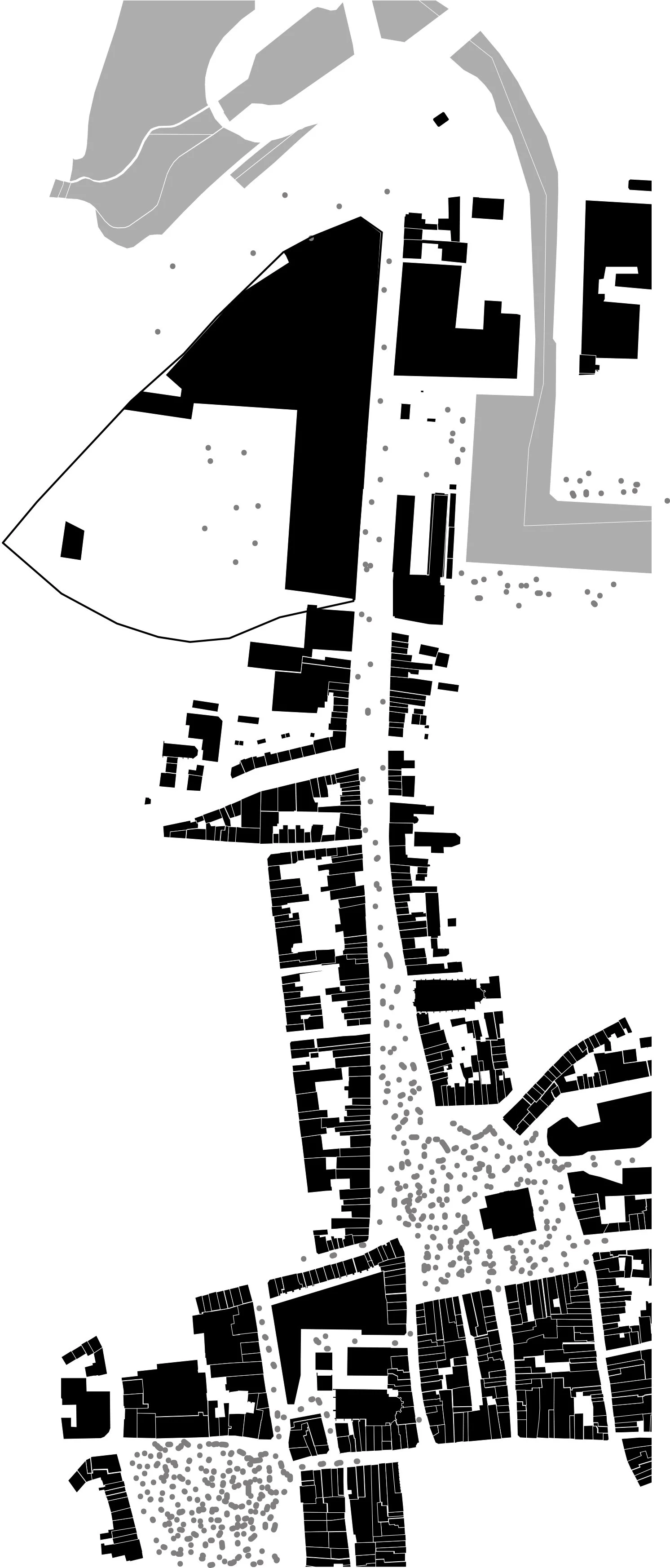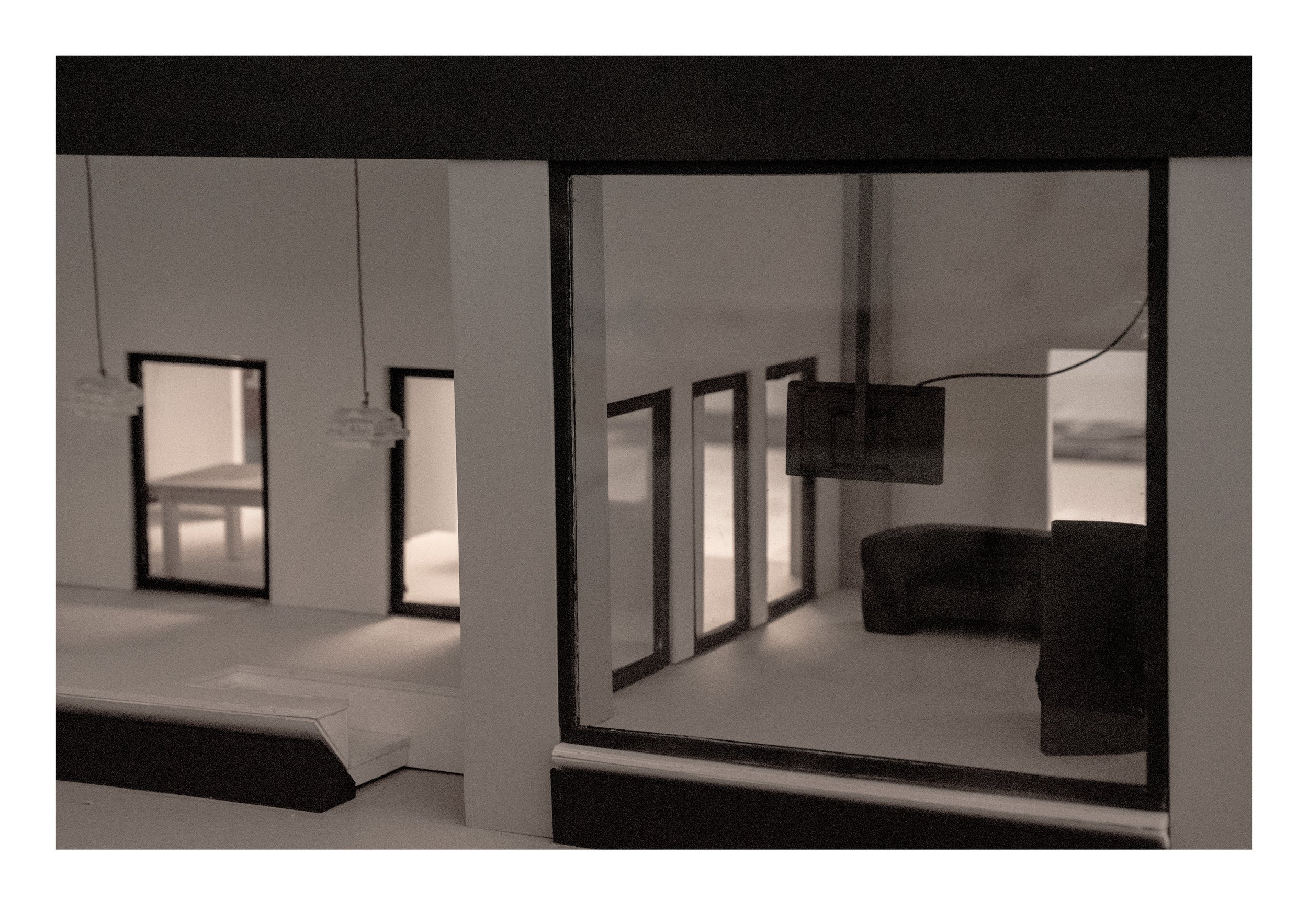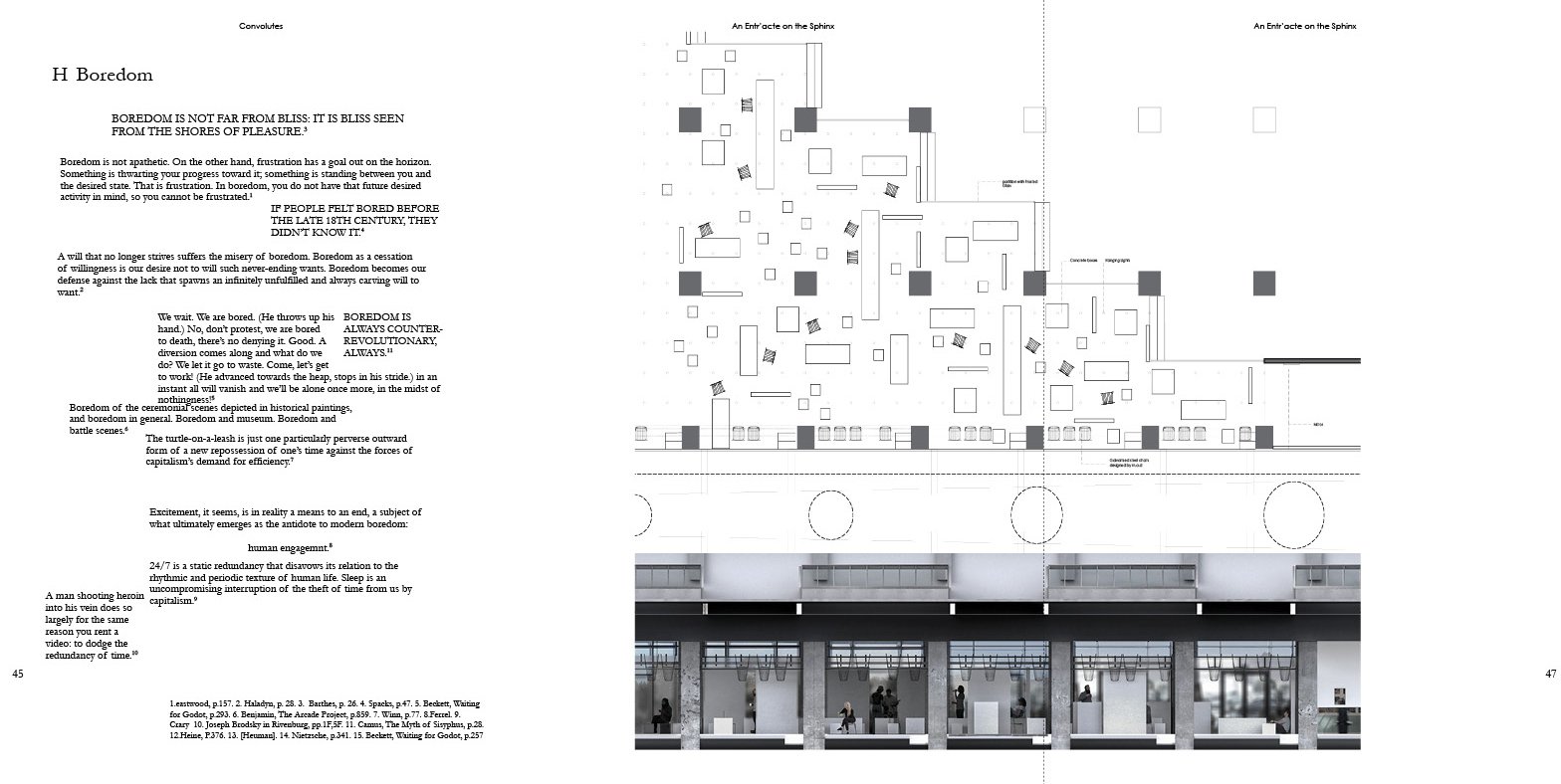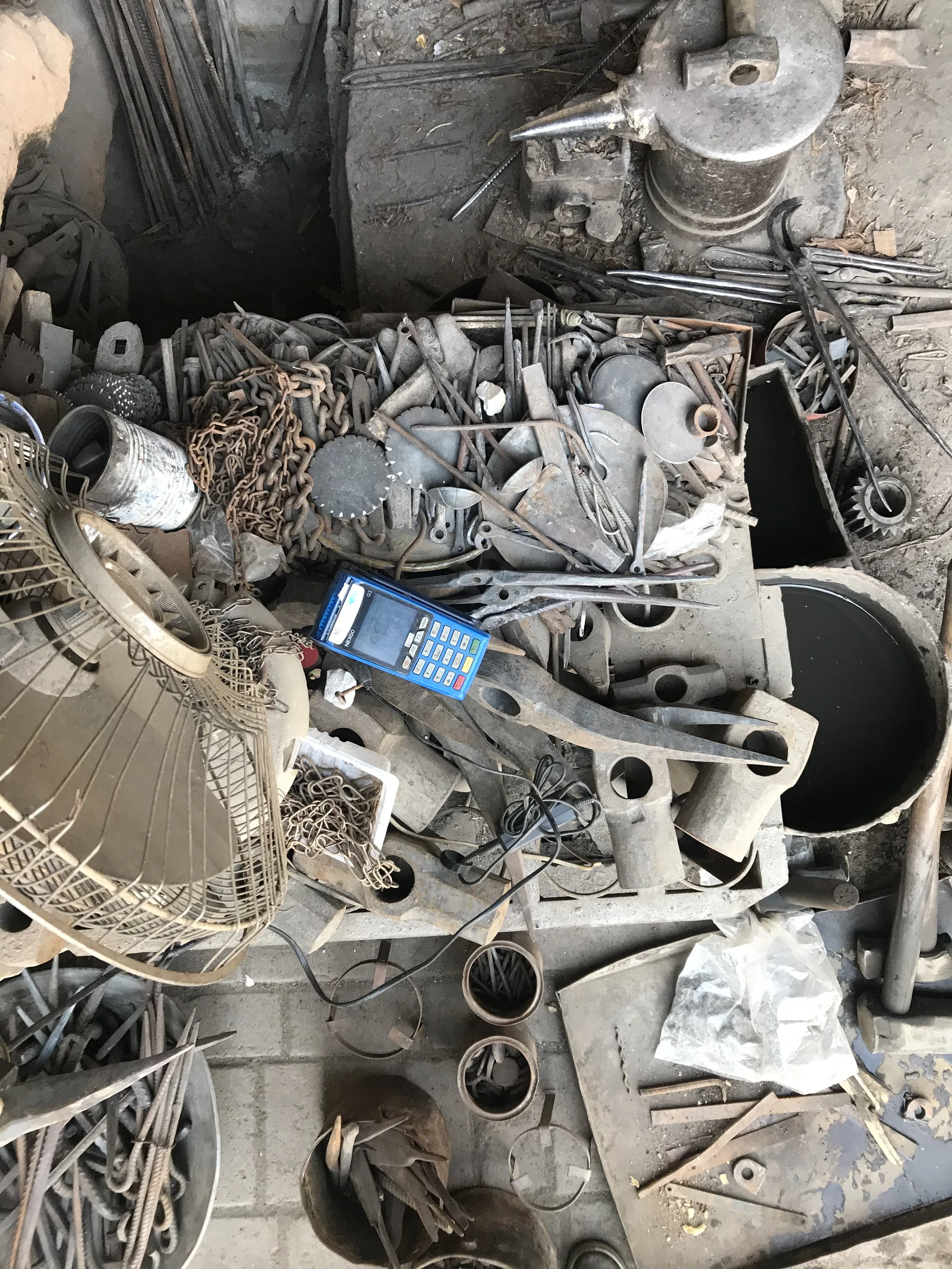Entr’acte on the Sphinx
unbuilt - 2020 - Maastricht
Entr’acte on the Sphinx is a scenographic, urban intervention in the heart of Maastricht’s post-industrial landscape. Set within the 120-meter-long Sphinx Passage—once a corridor for factory laborers and now an underused transitional space—the project reimagines the passage as a stage for pause, reflection, and participation in the rhythms of urban life.
Rooted in autobiographical experience, the project reflects the designer’s personal journey from Tehran to Europe—a movement between two cultural and political worlds. The disorienting yet revealing experience of migration, the yearning for public freedom, and the confrontation with modernity all converge here. This project is not only an architectural response, but a personal reflection on what it means to live, move, and observe in the contemporary city.




Influenced by the writings of Walter Benjamin, especially The Arcades Project, the design reclaims the vitrine—a symbol of visual capitalism and modernity—as a reflective device. Instead of consumer goods, the new vitrines frame ordinary life, encouraging passersby to witness, to contemplate, and perhaps to engage.
The intervention unfolds in three narrative chapters:
Desire introduces a VR gaming space—a commentary on mediated experience and spectacle.
Progress continues with a tools shop, echoing industrial labor and the illusion of endless advancement.
Boredom culminates in a café space that embraces slowness, reflection, and the beauty of doing nothing, framing boredom not as emptiness, but as resistance to productivity.
The Sphinx Passage becomes a cinematic corridor, where architectural gestures—reflections, visual obstructions, transparent layers—create situations rather than fixed functions. Actors and spectators shift constantly. There is no clear stage, only a series of invitations to cross boundaries, both spatial and social.
Ultimately, Entr’acte on the Sphinx is a poetic, political, and personal project. It invites the city to reflect on itself, not through spectacle, but through fragments of the real. In a world increasingly driven by attention, speed, and consumption, this is a space to drift, to notice, and perhaps, to get pleasantly lost.
Inspired by the book, The ARCADES: Contemporary Art and Walter Benjamin, the visual and narrative extension of the project, this book brings together texts, sketches, and images in a layered, cinematic sequence. Inspired by Walter Benjamin’s convolutes, it weaves theory and autobiography into a poetic reflection on space, desire, and modern life.
Location: Maastricht, NL
Project Year: 2021
Project Team: Mehdi Mousavinasab - Sudeh Akhondi
